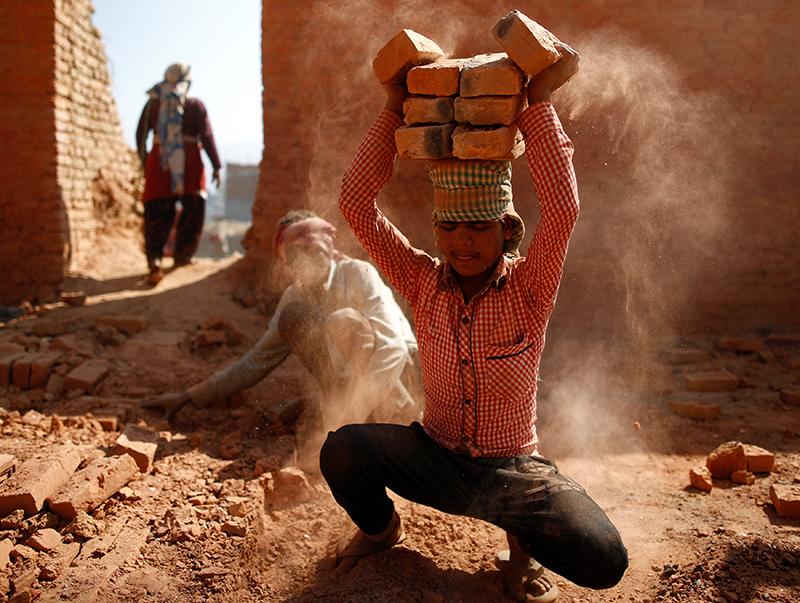Govt, brick kiln owners agree to end child labour
Kathmandu, July 30
The government and brick kiln entrepreneurs have agreed to end the use of child labour in the brick industry.
Minister of Labour, Employment and Social Security Gokarna Bista and Mahendra Bahadur Chitrakar, president of the Federation of Nepal Brick Industries (FNBI), signed an agreement to that effect today.
“After holding a series of discussions with various brick kiln entrepreneurs, we have agreed to end child labour in brick manufacturing factories and also agreed to implement the 10-year master plan for prevention of child labour,” said Minister Bista.
On July 9, the government had endorsed the master plan (2018-28) for prevention of child labour, which prohibits children from working in all sectors.
As per a study initiated by the government, there are 1,100 brick manufacturing factories across the country and among them 110 are located in Kathmandu Valley. The study also mentions that there are nearly 300,000 children working in brick kilns across the country.
“We have made a commitment to totally end child labour by 2028 as it is against human civilisation, humanity and justice,” Bista further added. “We will soon form a committee to monitor every brick factory in the country to check whether they are employing children or not.”
Now that the agreement to end child labour in brick factories has been signed and will be implemented immediately, the government will focus on ending child labour in other sectors as well, like transportation and hotels,” said Mahesh Prasad Dahal, secretary at the Ministry of Labour, Employment and Social Security (MoLESS).
“Though we might not be able to immediately get rid of this problem, we are committed to eliminating child labour by 2025 and we will fully cooperate with the government to end this practice,” said Chitrakar.
The MoLESS has the sole authority to implement the master plan and will cooperate with the Ministry of Women, Children and Social Welfare; Ministry of Science and Technology; Ministry of General Administration; Ministry of Communication and Information Technology; Ministry of Foreign Affairs and the Ministry of Agriculture, Land Management and Cooperatives for the purpose.
As per the master plan, use of children as domestic help, porters, farm workers, in collection and trafficking of narcotic drugs, in carpet weaving, sewing and hosiery, in brick kilns, mining sector, entertainment business, and transport sector has been strictly prohibited.
Similarly, use of child labour has been banned in foreign employment sector, mechanical and chemical industries, construction sector, hotels and restaurants, as beggars, street vendors and medicinal herbs collectors.
All these forms of child labour have been declared serious crime and would draw maximum penalty in case of non-compliance.
The plan has named the federal government, provincial governments, local level governments, civil society, non-government organisations, media and IT sector, business and private sector, and trade unions as responsible bodies to work for the prevention of child labour in the country.






